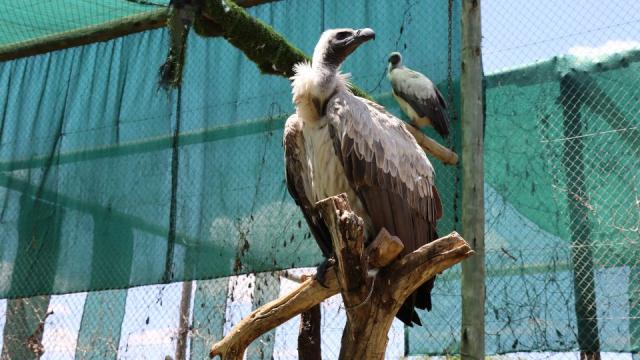Vultures, often unjustly maligned, are actually crucial players in maintaining ecological balance as nature’s cleanup crew. Sub-Saharan Africa is home to four vulture species that are critically endangered, prompting conservation efforts by organizations like VulPro.
Recently, VulPro undertook a significant operation to relocate 160 Cape and African white-backed vultures to the Shamwari Private Game Reserve in Eastern Cape. This relocation, spanning over 1,000 kilometers, aims to not only bolster wild vulture populations but also mitigate disease risks associated with the birds’ high-density environment at VulPro’s center.
Contrary to common misconceptions, vultures are incredibly clean animals. They meticulously groom themselves after feeding and possess exceptional eyesight and strong beaks, allowing them to efficiently scavenge carcasses. Their unique digestive systems further contribute to ecosystem health by destroying harmful pathogens present in carrion.
Despite their ecological importance, vultures face numerous threats, including hunting and poisoning fueled by superstitions and beliefs in traditional medicine. VulPro’s rehabilitation efforts, combined with educational initiatives, seek to dispel these misconceptions and protect vultures from further harm.
At the Shamwari reserve, vultures will find a safe haven to thrive alongside other wildlife, closely monitored through tracking devices. Through community engagement and awareness campaigns, conservationists hope to secure the future of these misunderstood yet vital birds.
Overall, the relocation of vultures to Shamwari represents a significant step in vulture conservation efforts, aiming to ensure their continued existence in the wild while promoting their ecological significance and dispelling harmful myths surrounding these remarkable creatures.















































